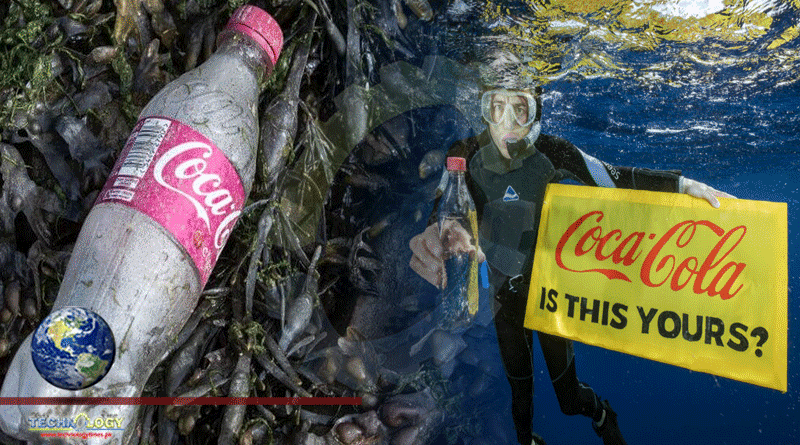It’s Not Surprising To See The Same Big Brands On The Podium As The World’s Top Plastic Polluters For Three Years In A Row

Coca-Cola Company, PepsiCo and Nestlé continue to be the world’s biggest plastic polluters, according to data compiled by the global environmental organization Break Free From Plastic. The group had more than 14,000 volunteers collect nearly 350,000 pieces of tossed plastic to trace the source of the waste and published its results Monday as part of a push to reduce single-use plastics. The audit found that 63 per cent of the plastics in 55 countries was clearly marked with a consumer brand name. Because of the COVID-19 pandemic, volunteers examined about one-tenth of the objects with home-based audits this year.
The brand audits were conducted between Aug. 1 and Sept. 30. Volunteers identified 44 different retail brands in Canada and found the highest number of plastic items they collected came from Costco, followed by PepsiCo, SC Johnson and Walmart. Break Free From Plastic said the top three companies on the list, well known for the plastic bottles used to package their product, have made the list every year since the group’s first brand audit for plastic polluters was conducted in 2018. The Coca-Cola label was discovered in more countries than the two plastic-polluting firms that were next on the list. All three companies have said they are working to address wasteful packaging — but at least one environmentalist alleges they are instead ramping up their use of plastic.
Same big brands make the list
“It’s not surprising to see the same big brands on the podium as the world’s top plastic polluters for three years in a row,” Abigail Aguilar, plastics campaign regional co-ordinator of Greenpeace Southeast Asia, said in a statement. “These companies claim to be addressing the plastic crisis, yet they continue to invest in false solutions while teaming up with oil companies to produce even more plastic. “To stop this mess and combat climate change, multinationals like Coca-Cola, PepsiCo and Nestlé must end their addiction to single-use plastic packaging and move away from fossil fuels.”
Rounding out the top 10 brands for plastic pollution in the report are:
- Unilever
- Mondelez International
- Mars, Inc.
- Procter & Gamble
- Philip Morris International
- Colgate-Palmolive
- Perfetti Van Melle
The most common items collected were plastic bags, followed by cigarette butts and plastic bottles. “Only nine per cent of all the plastic ever made has been recycled, yet … [producers] continue to hail recycling as the ultimate solution to combating the plastic pollution crisis,” Break Free From Plastic said in its report. “However, most single-use plastic simply can’t be recycled or it’s just not economical to do so, especially when the cost of virgin plastic is very low.”
Coke promises 50% recycled material by 2030
According to a report by the Changing Markets Foundation released in September, the Coca-Cola Company produces 2.9 million tonnes of plastic packaging a year, the largest volume of any company. Coca-Cola has promised to make its products with 50 per cent of recycled material by 2030. PepsiCo has said it will aim to reduce by 35 per cent its use of virgin (unrecycled) plastic content by 2025. Nestlé has said it’s moving toward a goal of having all reusable or recyclable packaging in the next five years.
The companies named as the seven top polluters of plastic have joined The New Plastics Economy Global Commitment, an initiative to change the plastic system with the end goal of having all plastic packaging reusable, recyclable or compostable by 2025.
However, according to a report released last month by the Ellen MacArthur Foundation, which is working on the initiative along with the UN Environment Program, the signatories have reduced their use of virgin plastic by only 0.1 per cent from 2018 to 2019.
This news was originally published at CBC
